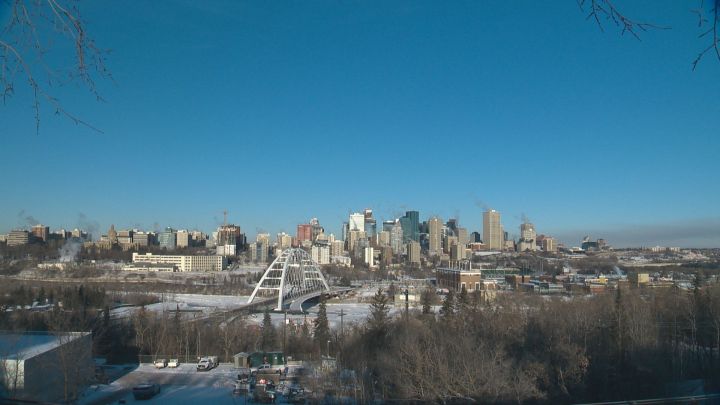The City of Edmonton announced late Sunday a municipal employee has tested positive for COVID-19.

That person is the first city employee to test positive for the coronavirus. According to the city, the case is travel-related. The city did not say where the employee had travelled to.
“I want to be clear that we are responding calmly and effectively,” interim city manager Adam Laughlin wrote in a statement.
“Our priority is always health and safety-both for our employees and the broader public.”
Laughlin said the person is not in a role that involves frequent contact with the public.
Their place of work has been “thoroughly disinfected,” according to Laughlin.
The statement goes on to say that the person is in self-isolation at home. Those who need to self-isolate after being in contact with the employee have been notified.
In the statement, Laughlin added the person will not suffer financially as a result of being away from work.
The city maintains a recent decision to close recreational facilities and other attractions is not related to the positive test.
It was not immediately announced whether the case is one of the 17 new confirmations announced in Alberta earlier Sunday.
Laughlin will be holding a news conference on Monday to address the employee illness and provide an update on what the actions the city is taking around COVID-19.
The new coronavirus was first identified in Hubei province, China, in December 2019 and spread rapidly. While the outbreak has begun to level off in China, it seems the virus has found a foothold in a number of countries around the world, and it continues to spread.
Confused about COVID-19? Here are some things you need to know:
Health officials say the risk is very low for Canadians, but they caution against travel to affected areas (a list can be found here). If you do travel to these places, they recommend you self-monitor to see whether you develop symptoms and if you do, to contact public health authorities.
Symptoms can include fever, cough and difficulty breathing – very similar to a cold or flu. Some people can develop a more severe illness. People most at risk of this include older adults and people with severe chronic medical conditions like heart, lung or kidney disease.
To prevent the virus from spreading, experts recommend frequent handwashing and coughing into your sleeve. And if you get sick, stay at home.
Visit full COVID-19 coverage on Global News.
- Canadian man dies during Texas Ironman event. His widow wants answers as to why
- ‘Sciatica was gone’: hospital performs robot-assisted spinal surgery in Canadian first
- Canadians more likely to eat food past best-before date. What are the risks?
- Treatment from female doctors leads to lower death rates, study finds





Comments